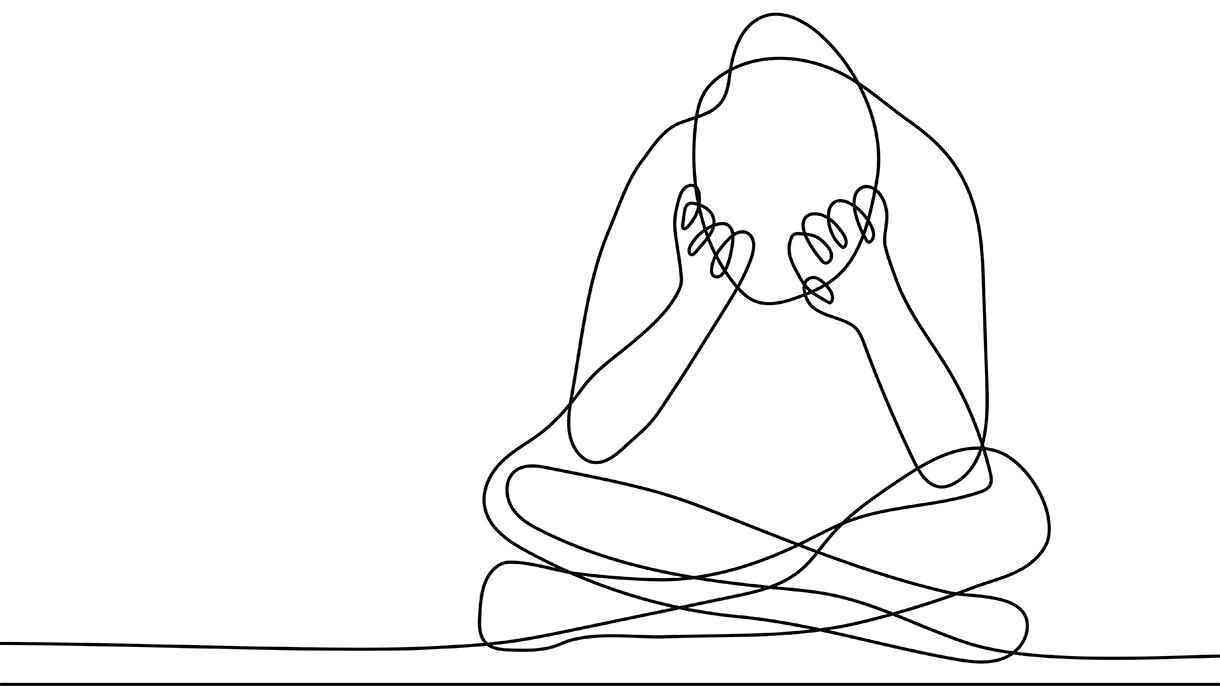Trauma Therapy
YESTERDAY DOESN’T HAVE TO DICTATE TOMORROW

Do you find yourself feeling anxious, depressed, or ashamed without knowing where these challenges come from?
Have you ever wondered if your struggles are the result of unresolved trauma?
Is it hard for you to open up to others because of how you’ve been hurt in the past?
Maybe you move through each day feeling constantly on edge, as if everything could fall apart at any moment. As a result, you might be overeating, undereating, turning to sex, or using substances.
Perhaps it’s hard to feel safe in your own skin or trust your own abilities — like you’re always second-guessing yourself or holding back just when a new opportunity comes along. For the first time, maybe you’re wondering if it’s time to see a therapist who specializes in helping trauma survivors.
Trauma Often Goes Hand In Hand With A Lack Of Fulfilling Relationships
Many people with trauma find it hard to build deeper emotional connections, so you’re not alone. If you grew up in a house where you were frequently criticized, you might struggle with people-pleasing and have trouble being vulnerable. Or if you were cheated on in a past relationship, you may have a tough time being intimate with others.
In this way, trauma keeps you stuck in old patterns and frozen in a state of “fight-flight-or-freeze”—as if you’re still in the same relationships and situations that made you feel anxious and overwhelmed in the past.
One of the most powerful things about counseling is its ability to help you break old cycles and create a new, more fulfilling path forward. At TJK Counseling and Consulting Services, my mission is to walk with you through healing from trauma and PTSD — and to help you shape a life that reflects strength, purpose, and personal growth. Trauma Is At The Heart Of Many Mental Health Challenges
When most people think of trauma, they think of military combat and earth-shattering natural disasters. What they don’t realize is that trauma can also look like:
- Growing up with overly critical or emotionally unavailable parents
- Being bullied, harassed, or rejected
- Experiencing emotional, physical, or sexual abuse
- Living with a chronic illness
- Working in a toxic or high-stress environment
- Having a job that exposes you to constant suffering
- Grieving the loss of a loved one
- Going through divorce or separation
All of these experiences qualify as “complex trauma,” and they often take place over long periods of time as a result of repeated emotional injuries.
Sadly, many people don’t get the trauma-informed care they need because they don’t realize they’re suffering from trauma. They often think: “I’ve always been anxious and depressed—it’s just part of who I am.” On their own, they don’t always connect the dots between their present suffering and past hardships.
Trauma Is Often Too Complex To Work Through Without Counseling
Oftentimes, people try to overcome trauma simply by burying or suppressing it. Many people try to cope with trauma by pushing it down and carrying on — especially in professions where strength is expected and vulnerability is rarely welcomed.
Whether you work in healthcare, tech, politics, public service, or any other high-stress environment, you may have been told to ‘tough it out’ or ‘keep it moving.’ But unprocessed pain doesn’t disappear — and therapy offers the space to finally tend to what’s been pushed aside.
What’s more, the complexity of trauma involves interwoven layers of emotional, physical, and cognitive symptoms that are difficult to untangle without professional help. Digging through the layers of trauma means working with the body and subconscious mind on a deeper level.
This is highly specialized work, which is why it’s so important to see a counselor who is trained to work with trauma survivors.
Recovery Is Possible Through The Power Of Trauma Therapy
In the past, you may have developed certain skills to function and survive in toxic or hostile environments. For example, if you grew up with verbally or physically abusive parents, you may have learned to please others as a means of avoiding punishment and abuse.
Therapy is a chance to heal from painful experiences so that you do not have to keep resorting to old defenses and coping skills. It’s an opportunity to update the way you show up in the world and unlearn the behaviors that are no longer serving you.
To initiate this healing process, you and I will delve deep into the root causes of your trauma, exploring not just the traumatic event but also how your life has been reshaped by it. We’ll work together to identify how these experiences influence your current thought patterns, behaviors, and relationships.
Once we have this understanding in place, we can focus on setting long-term goals for therapy and begin working toward a sustainable recovery.
Tailoring My Approach To Trauma Therapy
I view therapy like doing a puzzle—by getting to know you, understanding your background, and making connections between your past and present, we can fit the pieces of the puzzle together and develop a form of treatment that’s personalized for you.
I often bring in a wide range of mindfulness skills in trauma counseling, using deep breathing techniques to help clients manage their PTSD symptoms and relaxation skills to help them remain calm and grounded as they process their trauma. To achieve the deeper work of processing the pain of the past, I may draw from approaches such as:
- Eye Movement Desensitization and Reprocessing (EMDR) to reduce the emotional charge of trauma, allowing you to remember your experiences without feeling overwhelmed.
- Cognitive Behavioral Therapy (CBT) to reverse the negative thought patterns and harmful self-beliefs that stem from trauma.
- Brain Spotting to help you process the psychological effects of trauma through eye movements and visual cues.
- Accelerated Resolution Therapy (ART) to reprogram your nervous system so that it is no longer triggered by distressing images and events.
Through this diverse, comprehensive approach to the healing process, I’m confident that I can help you recover from trauma and find the path forward. Beyond just getting control of your symptoms, I want you to enjoy a newfound appreciation for life, deeper and more fulfilling relationships, and a stronger sense of personal identity.
You May Have Some Questions About Trauma And PTSD Therapy…
Won’t talking about my trauma just make me feel worse?
My approach is intentionally paced, always honoring your comfort level and readiness. Therapies like EMDR and Accelerated Resolution Therapy are especially effective because they allow you to process trauma without having to talk about every detail. You’re in control of how much you share — the focus is on healing the impact trauma has on your life today, not on reliving the past.
I’ve tried therapy before and it didn’t work. How will this be different?
My approach is compassionate and personalized. I understand that each individual’s experience of trauma is unique, and therefore, I always tailor therapy so that it is uniquely personalized to their needs and goals.
Additionally, I am committed to ongoing professional development to ensure that I am equipped with the latest research and techniques in trauma therapy. This commitment to my practice and my clients provides me with up-to-date and effective therapeutic interventions.
How long will trauma treatment take?
For clients who want to do their healing in a more accelerated format, I am happy to offer EMDR intensive sessions, which essentially pack the work of therapy into a few days. For those who choose standard weekly sessions, therapy can be short-term or long-term. Regardless of how long therapy takes, it’s important to move at a pace that’s right for you and be patient with yourself along the way.
A Future Of Healing And Peace Awaits You
The pain of the past does not have to hold you back from the life you’ve always wanted. With my help, I believe you can heal your emotional scars and put the puzzle pieces of your life back together. To learn more about my empowering approach to trauma therapy, you can schedule a free 15-minute phone consultation.
